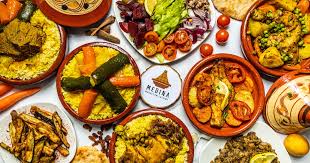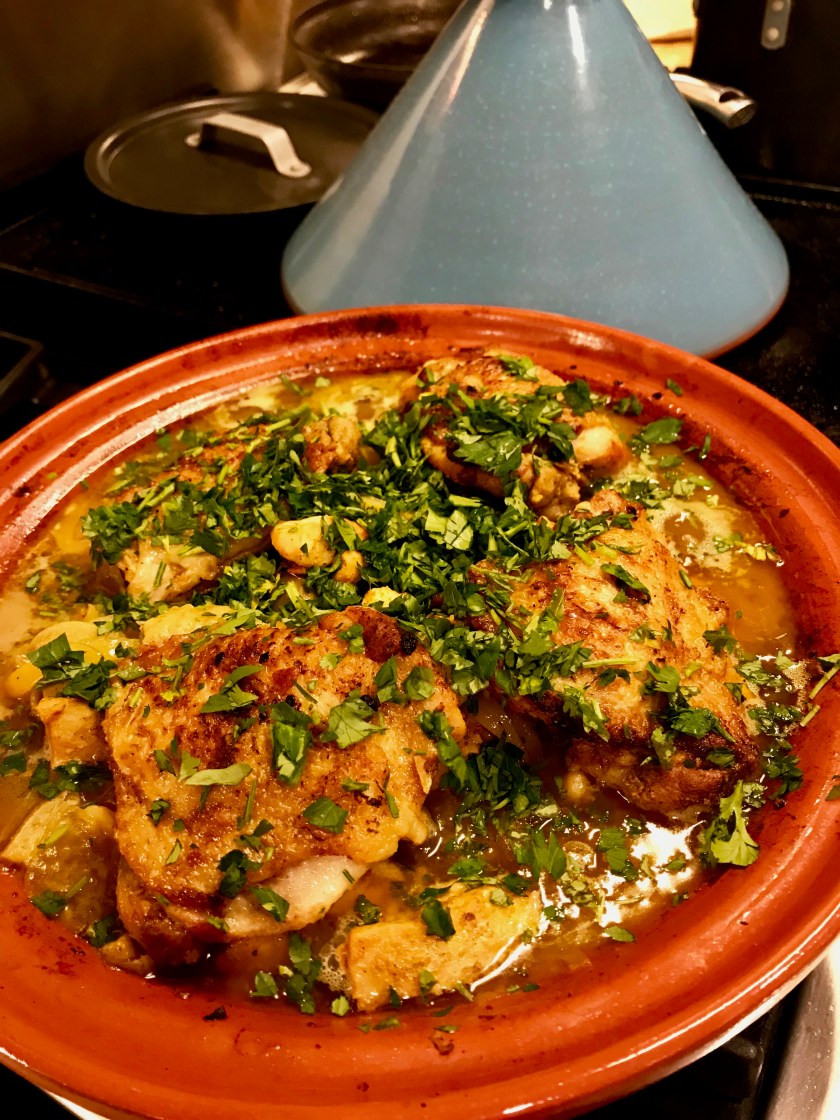The History of Jews in Morocco: A Tale of Resilience and Cultural Exchange
For centuries, the Jewish community has been an integral part of the rich tapestry of Moroccan history. From ancient times to the present day, Jews have played a significant role in shaping the cultural, economic, and social landscape of this North African country.
Ancient Roots
The presence of Jews in Morocco dates back to antiquity, with some historical accounts suggesting that Jewish communities settled in the region as early as the Roman era. Over time, these communities thrived and established strong ties with local Berber and Arab populations.
Golden Age of Coexistence
During the Islamic Golden Age in Morocco, which spanned from the 8th to the 15th century, Jews enjoyed a period of relative peace and prosperity. They contributed to various fields such as trade, medicine, and philosophy, fostering a culture of intellectual exchange and tolerance.
Impact of Spanish Inquisition
In the late 15th century, many Sephardic Jews fled persecution in Spain and Portugal and sought refuge in Morocco. This influx of Sephardic Jews enriched Moroccan Jewish culture and traditions, leading to a vibrant fusion of Sephardic and local customs.
Modern Challenges
Despite centuries of coexistence, the Jewish community in Morocco faced challenges during the 20th century due to political changes and waves of emigration. However, efforts have been made to preserve Jewish heritage sites and promote intercultural dialogue between Jewish and Muslim communities.
Promoting Cultural Heritage
Today, Morocco continues to celebrate its diverse cultural heritage by recognising the contributions of its Jewish population. Festivals like Mimouna honour Jewish traditions, while initiatives such as restoration projects for historic synagogues highlight the importance of preserving this shared history.
A Legacy of Resilience
The story of Jews in Morocco is one of resilience, adaptation, and mutual respect. Through periods of prosperity and adversity, Moroccan Jews have maintained their identity while contributing to the tapestry of Moroccan society. Their legacy serves as a testament to the enduring spirit of cultural exchange and coexistence.
As we reflect on the history of Jews in Morocco, we are reminded that diversity enriches our collective experience and strengthens our bonds as a global community. Let us continue to celebrate cultural diversity and embrace our shared histories with openness and understanding.
Exploring the Rich History of Jews in Morocco: Key Questions and Insights
- When did Jews first arrive in Morocco?
- What was the relationship between Jews and local populations in ancient Morocco?
- How did the Spanish Inquisition impact the Jewish community in Morocco?
- What contributions did Sephardic Jews make to Moroccan culture?
- What challenges did the Jewish community face in 20th-century Morocco?
- How is Jewish heritage preserved in modern-day Morocco?
- Are there any famous Moroccan Jews who have left a lasting impact on history?
- What cultural exchanges took place between Jews and Muslims in Morocco throughout history?
- How has the perception of Jews in Morocco evolved over time?
When did Jews first arrive in Morocco?
The arrival of Jews in Morocco dates back to ancient times, with historical records suggesting that Jewish communities settled in the region as early as the Roman era. Over the centuries, Jews established roots in Morocco and became an integral part of its cultural fabric. The exact timeline of their arrival may vary across different regions within Morocco, but their presence has been documented throughout various periods of Moroccan history, showcasing a long-standing connection between the Jewish community and the country.
What was the relationship between Jews and local populations in ancient Morocco?
In ancient Morocco, the relationship between Jews and local populations was characterised by a blend of cooperation, mutual respect, and cultural exchange. Jewish communities established strong ties with Berber and Arab inhabitants, contributing to the diverse fabric of Moroccan society. Through shared experiences and interactions, Jews and locals engaged in trade, intellectual pursuits, and religious practices, fostering a sense of unity amidst cultural diversity. This harmonious coexistence laid the foundation for a rich tapestry of traditions that shaped the history of Jews in Morocco and left a lasting legacy of intercultural dialogue and understanding.
How did the Spanish Inquisition impact the Jewish community in Morocco?
The Spanish Inquisition had a profound impact on the Jewish community in Morocco, particularly during the late 15th century when many Sephardic Jews sought refuge in the country to escape persecution in Spain and Portugal. The influx of Sephardic Jews enriched Moroccan Jewish culture and traditions, creating a vibrant fusion of Sephardic and local customs. This migration significantly influenced the demographic composition and cultural landscape of Morocco, leading to a period of cultural exchange and adaptation within the Jewish community. The Spanish Inquisition’s legacy continues to be felt in Morocco’s history, shaping the country’s diverse identity and highlighting the resilience of its Jewish population in the face of adversity.
What contributions did Sephardic Jews make to Moroccan culture?
Sephardic Jews made significant contributions to Moroccan culture, enriching it with their unique traditions, language, cuisine, and craftsmanship. Their arrival in Morocco during the Spanish Inquisition brought a cultural fusion that influenced art, music, and architecture. Sephardic Jews introduced new culinary delights such as pastilla and preserved lemons, which are now staples of Moroccan cuisine. Their expertise in various crafts like metalwork and textile weaving added a distinct flair to Moroccan artisanal traditions. Additionally, Sephardic Jews played a pivotal role in shaping the intellectual landscape of Morocco through their contributions to literature, philosophy, and religious scholarship. The legacy of Sephardic Jews in Moroccan culture is a testament to the power of cultural exchange and collaboration across diverse communities.
What challenges did the Jewish community face in 20th-century Morocco?
In the 20th century, the Jewish community in Morocco encountered various challenges that significantly impacted their lives. Political changes, economic instability, and social tensions created a complex environment for Moroccan Jews. Emigration became a common response to these challenges, leading to a gradual decline in the Jewish population within the country. Additionally, instances of discrimination and restrictions on religious practices posed obstacles to the community’s ability to freely express their cultural and religious identity. Despite these hardships, the Jewish community in 20th-century Morocco demonstrated resilience and adaptability in navigating through turbulent times while striving to preserve their heritage amidst changing societal dynamics.
How is Jewish heritage preserved in modern-day Morocco?
In modern-day Morocco, the preservation of Jewish heritage is a testament to the country’s commitment to honouring its diverse cultural legacy. Through initiatives such as restoration projects for historic synagogues, educational programmes on Jewish history and traditions, and cultural festivals that celebrate Jewish customs, Morocco actively works to safeguard and promote its Jewish heritage. By recognising the contributions of the Jewish community and fostering intercultural dialogue, Morocco ensures that this rich tapestry of history remains vibrant and accessible for future generations to cherish and learn from.
Are there any famous Moroccan Jews who have left a lasting impact on history?
Throughout history, several prominent Moroccan Jews have left a lasting impact on both local and global stages. One notable figure is Sol Hachuel, a Jewish woman from Tangier who became a symbol of resistance against religious persecution in the 19th century. Another influential figure is André Azoulay, an advisor to the Moroccan royal family and a key advocate for interfaith dialogue and cultural exchange. These individuals, among others, have not only contributed significantly to Moroccan history but have also exemplified the spirit of resilience and cross-cultural understanding that characterises the Jewish community’s legacy in Morocco.
What cultural exchanges took place between Jews and Muslims in Morocco throughout history?
Throughout history, Jews and Muslims in Morocco engaged in a myriad of cultural exchanges that enriched both communities. From the sharing of culinary traditions and music to the exchange of knowledge in fields such as medicine, philosophy, and art, these interactions fostered a deep sense of mutual respect and understanding. The coexistence of Jewish and Muslim communities in Morocco led to a vibrant fusion of customs, rituals, and languages, creating a unique cultural tapestry that continues to shape the country’s identity today. This cultural exchange not only strengthened bonds between individuals but also highlighted the importance of tolerance, cooperation, and appreciation for diversity in Moroccan society.
How has the perception of Jews in Morocco evolved over time?
The perception of Jews in Morocco has undergone a complex evolution over time, reflecting the country’s diverse historical and cultural dynamics. From the ancient era of coexistence and mutual respect to periods marked by political upheaval and social change, the image of Jews in Morocco has shifted in response to various influences. While stereotypes and prejudices have at times clouded perceptions, efforts towards intercultural dialogue and preservation of Jewish heritage have played a crucial role in fostering understanding and appreciation. Today, there is a growing recognition of the valuable contributions made by the Jewish community to Moroccan society, highlighting a more inclusive and nuanced view that acknowledges the shared history and cultural richness that binds both communities together.




